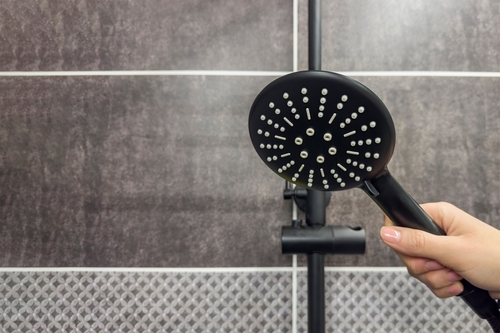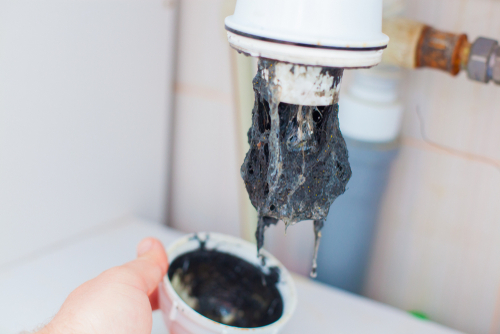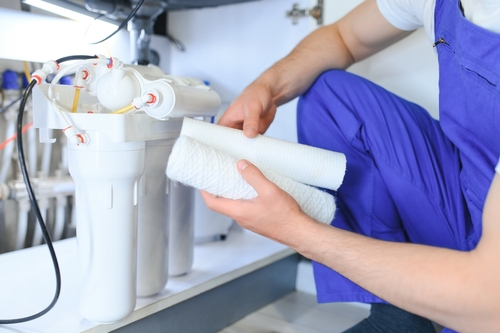
How to Choose the Right Plumbing Fixtures and Faucets for Your Home?
July 30, 2023
How to Detect and Fix Hidden Water Leaks?
August 29, 2023Tips for Plumbing in New Home Construction and Remodeling
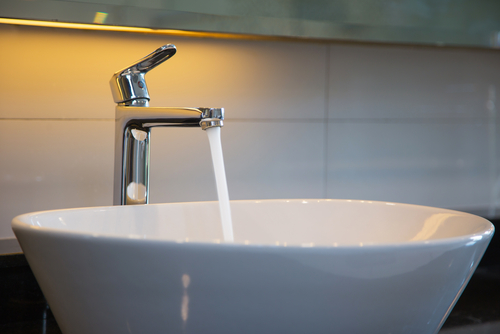
Tips for Plumbing in New Home Construction and Remodeling
Tips for Plumbing in New Home Construction and Remodeling. Plumbing plays a crucial role in any home. It ensures a clean water supply, facilitates proper waste disposal, and is integral to home appliances such as dishwashers and washing machines.
Proper plumbing is vital for home hygiene, convenience, and safety. Whether building a new home or remodeling an existing one, it’s crucial to understand and plan for the home’s plumbing needs.
This article provides useful tips for homeowners, builders, and remodelers for effectively installing plumbing in new homes and during remodeling projects.
Read on – Tips for Plumbing in New Home Construction and Remodeling:
Preparing Plumbing Plans
Effective plumbing installation starts with a well-prepared plan. Collaborating with architects and designers can help ensure that the plumbing layout matches the overall home design and that it allows for easy maintenance and future upgrades.
Before construction or remodeling begins, assess the home’s water supply and drainage needs.
This includes identifying suitable locations for water lines, drain pipes, and plumbing fixtures and ensuring adequate water pressure and efficient waste removal.
When planning plumbing, consider potential future upgrades. This could include adding extra bathrooms, installing outdoor faucets, or integrating a home water filtration system.
Adequate planning can make these upgrades easier and less costly.
Hiring Licensed Plumbers
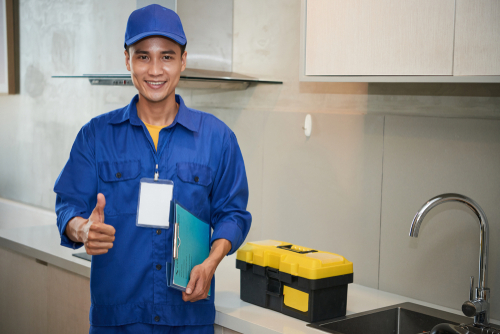
Importance of Qualified and Experienced Plumbers
Hiring a licensed and experienced plumber is essential for proper plumbing installation. Qualified plumbers understand the intricacies of plumbing systems, can ensure adherence to building codes, and can troubleshoot any issues that may arise.
Checking Licensing and Accreditation
Before hiring a plumber, verify their license and accreditation. In Singapore, plumbers should be licensed by the Public Utilities Board (PUB). Accreditation by recognized trade bodies can also provide assurance of the plumber’s competence and professionalism.
Verifying Insurance Coverage for Plumbing Work
Ensure that the plumber has appropriate insurance coverage. This can protect you from potential liabilities, such as damage to your property or injuries sustained by the plumber during the project.
Choosing Quality Plumbing Materials
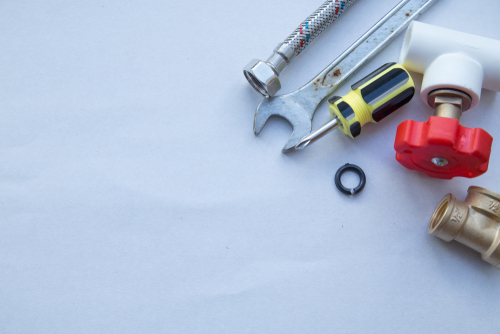
Opting for Durable and Certified Plumbing Fixtures
Investing in durable and certified plumbing fixtures can save money and hassle in the long run. Quality fixtures are more likely to withstand regular use, resist corrosion, and have fewer leaks or malfunctions.
Selecting Water-Efficient Fixtures for Sustainability
Water-efficient fixtures like low-flow faucets and dual-flush toilets can help conserve water and reduce utility bills. Look for products with ratings from Singapore’s Water Efficiency Labelling Scheme (WELS).
Avoiding Low-Quality or Unbranded Plumbing Components
While low-quality or unbranded components may be cheaper, they can lead to more frequent repairs and higher maintenance costs. Stick to reputable brands and quality products for reliable performance.
Water Supply System Installation
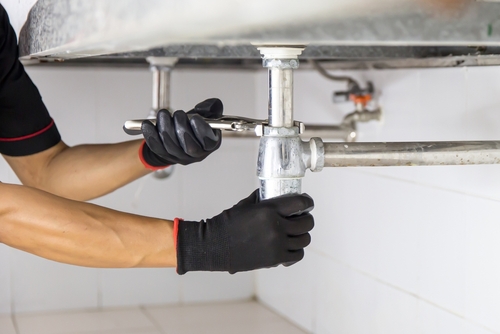
Installing Main Water Line and Pressure Regulators
The main water line supplies water to the entire home, so it needs to be installed correctly and securely. A pressure regulator can ensure consistent water pressure throughout the home and prevent damage to pipes and fixtures from high pressure.
Properly Sizing and Positioning Water Heaters
Water heaters should be correctly sized according to the home’s hot water demand. They should be installed in accessible areas for easy maintenance, and their settings should be optimized for energy efficiency.
Ensuring Adequate Water Pressure in All Areas
Check that all areas of the home, including the upper floors, have adequate water pressure. This may require installing additional pumps or adjusting pipe sizes.
Drainage and Sewage System
Designing Efficient Drainage Layouts
An efficient drainage layout ensures quick and smooth waste disposal. It should minimize the use of bends and horizontal pipes, which can slow down drainage and cause blockages.
Installing Proper Ventilation for Drainage Systems
Proper ventilation is crucial to maintain good drainage and prevent sewer gases from entering the home. All fixtures should be vented, and vent pipes should extend above the roof.
Connecting to Sewage Lines Correctly
Sewage lines should be connected to the home’s drainage system following local building codes. The connection should be sealed to prevent leaks and odor.
Kitchen and Bathroom Plumbing
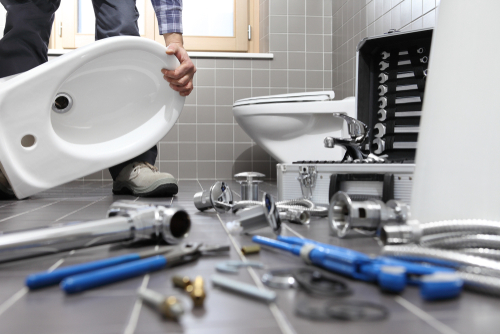
Installing Kitchen Sink and Dishwasher Plumbing
The kitchen sink and dishwasher should have separate water supply lines and drain pipes. Consider installing a garbage disposal unit for convenience and hygiene.
Ensuring Proper Plumbing for Bathroom Fixtures
Bathroom fixtures such as toilets, sinks, showers, and bathtubs should be plumbed correctly to ensure efficient water supply and waste disposal. This requires careful planning and skillful execution.
Incorporating Water-Saving Devices in Bathrooms
Consider installing water-saving devices in bathrooms, such as low-flow showerheads and faucets, dual-flush toilets, and water-efficient washing machines. These can significantly reduce water consumption.
Plumbing for Home Appliances
Connecting Plumbing for Washing Machines
Washing machines need both a water supply and a drainage connection. The drainage pipe should have a trap and vent to prevent sewer gases from entering the home.
Properly Installing Dishwashers and Ice Makers
Dishwashers and ice makers should be installed close to the kitchen sink to simplify plumbing. They should be connected to both the water supply and drainage system.
Plumbing Considerations for Water Dispensers
If your refrigerator includes a water dispenser or ice maker, it will need to be connected to the water supply. This should be done using a safe and reliable connection method.
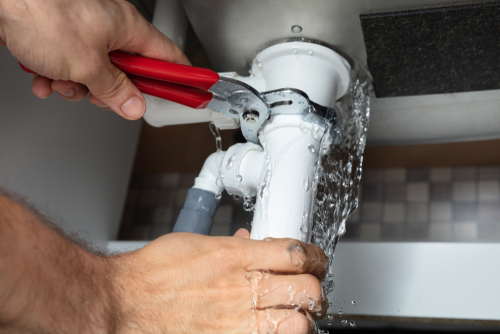
Plumbing Inspections and Leak Detection
Conducting Pre-Completion Plumbing Inspections
Conduct a thorough plumbing inspection before the construction or remodeling project is completed. This can help identify and correct any issues before they cause problems.
Regularly Checking for Leaks and Pipe Integrity
Check your plumbing system regularly for leaks, corrosion, or other signs of damage. Early detection can prevent major water damage and costly plumbing repairs.
Addressing Plumbing Issues Promptly
If a plumbing issue is detected, address it promptly. Delayed repairs can lead to further damage and higher repair costs.
Maintaining Plumbing Systems
Homeowners should be educated on proper plumbing maintenance, including checking for leaks, keeping drains clear, and winterizing outdoor faucets. This can extend the lifespan of the plumbing system and prevent major issues.
Regularly flushing and cleaning plumbing fixtures can prevent buildups of mineral deposits and prolong their lifespan. This includes cleaning faucet aerators, showerheads, and water heaters.
Regular plumbing checkups by a professional can detect potential issues before they become serious problems. Consider scheduling these checkups annually or semi-annually.
Tips for Plumbing in New Home Construction and Remodeling – Conclusion
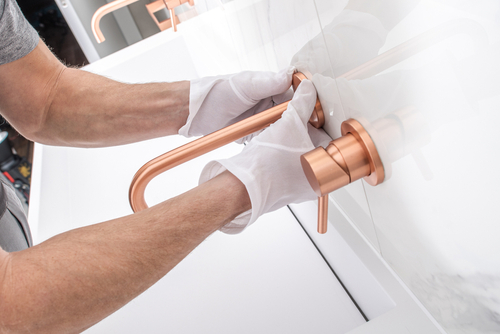
Effective plumbing installation in new home construction and remodeling involves careful planning, hiring qualified professionals, using quality materials, ensuring proper installation, complying with regulations, and maintaining the plumbing system properly.
These measures can ensure a safe, efficient, and durable plumbing system for your home.
Quality plumbing can provide long-term benefits such as durability, efficiency, comfort, and peace of mind. It can also enhance the value of your home.
For expert assistance with your new home construction or remodeling project in Singapore, don’t hesitate to contact us today.
Our team of licensed plumbers can provide professional advice and high-quality workmanship to ensure a successful plumbing installation for your home. Contact us today!

